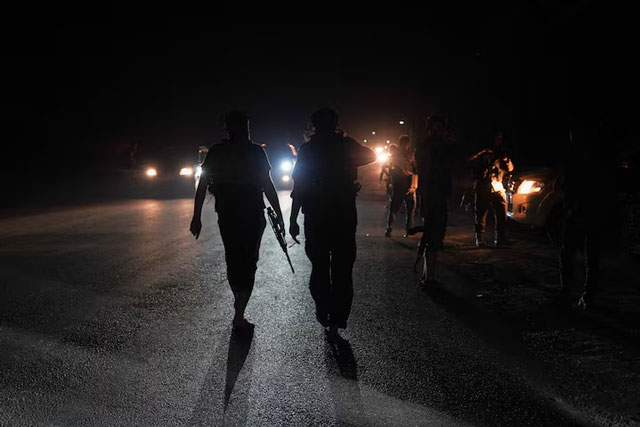Daijiworld Media Network – Jerusalem
Jerusalem, Jul 18: Israel has agreed to a temporary arrangement allowing limited access to Syrian internal security forces in the southern province of Sweida for 48 hours, following days of intense fighting that have left hundreds dead, officials confirmed on Friday.
"In light of the ongoing instability in southwest Syria, Israel has agreed to allow limited entry of the Syrian internal security forces into Sweida district for the next 48 hours," an Israeli official said, speaking on condition of anonymity.

Sweida, a predominantly Druze region near the Israeli-controlled Golan Heights, has witnessed renewed violence between Druze fighters and armed members of local Bedouin tribes. Syrian government forces, which had initially deployed to the area earlier this week, withdrew after a truce was declared on Wednesday, only for clashes to resume on Thursday night, residents and local media outlet Sweida24 reported.
Despite Israel’s temporary approval for security forces, Syria’s interior ministry denied any plans to redeploy troops to the area.
According to the Syrian Network for Human Rights, the recent bout of violence has claimed 254 lives in just four days, including women, children, and medical workers. Human rights monitors have also reported widespread violations including summary executions and kidnappings. The UN Office of the High Commissioner for Human Rights (OHCHR) said at least 13 people were unlawfully killed on July 15 alone, including six men executed near their homes.
Israel became directly involved on Wednesday, launching strikes on Syrian military positions in Sweida and reportedly targeting a site near the presidential palace in Damascus. Citing deep distrust of Syria’s interim Islamist-led government, Israel vowed to protect the Druze community in the south—encouraged by appeals from its own Druze population.
The UN has urged all parties to allow humanitarian access to affected areas, which has been severely restricted due to the fighting. Meanwhile, the US, which brokered the earlier truce between the Druze and Syrian forces, expressed disapproval of the Israeli strikes, indicating a growing divergence between Washington and Tel Aviv over Syria’s evolving crisis.
Syrian interim leader Ahmed al-Sharaa, who has sought better relations with the West, accused Israel of exploiting the conflict to divide the country. He vowed to protect the Druze and hold those responsible for atrocities accountable.
As fighting spills into the weekend, the humanitarian and geopolitical implications of the unrest in Sweida continue to escalate.